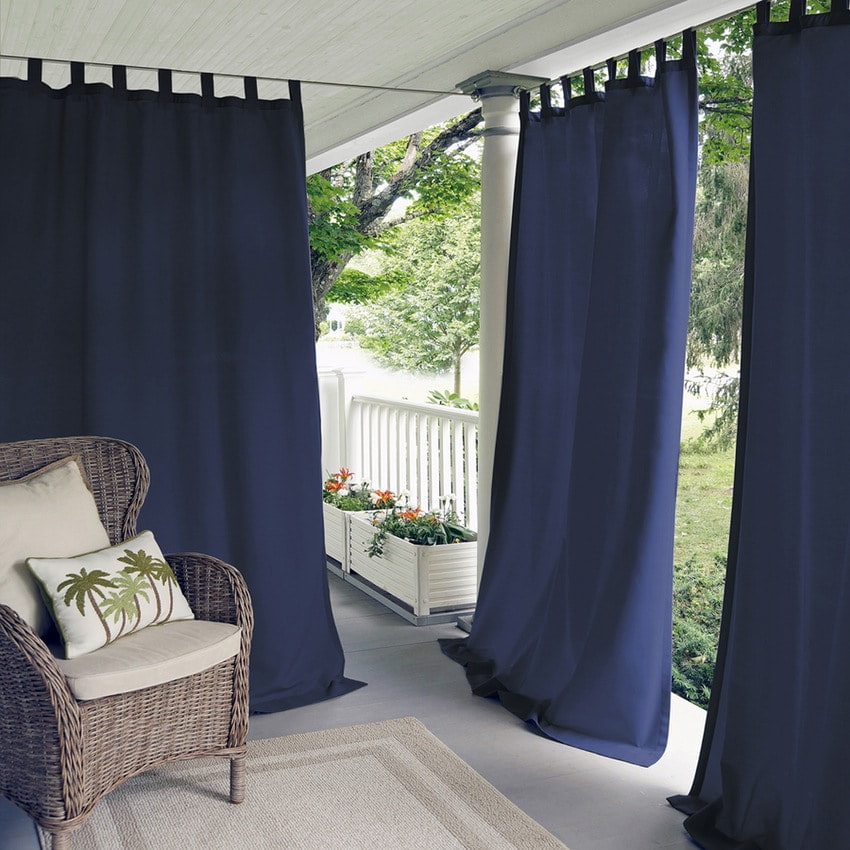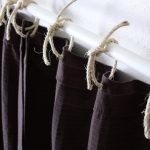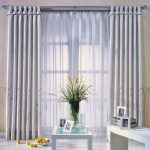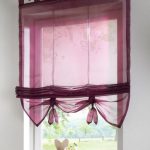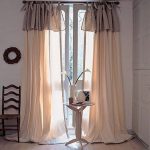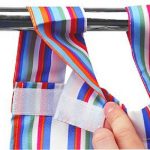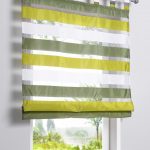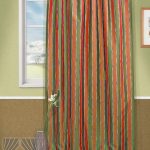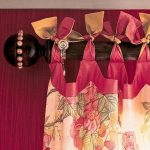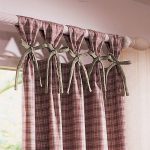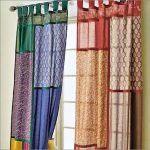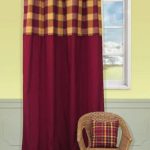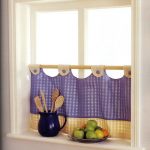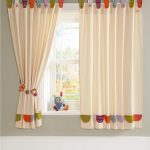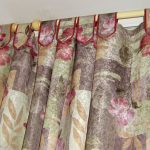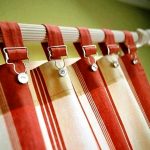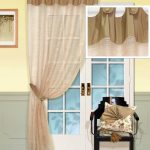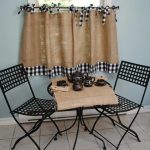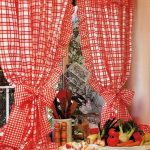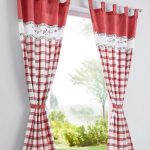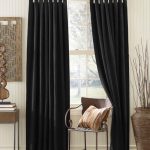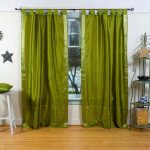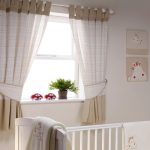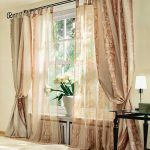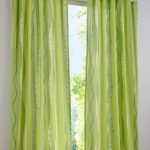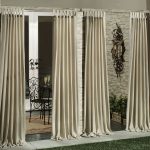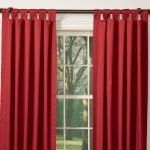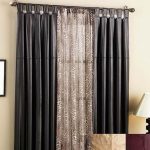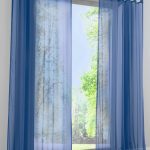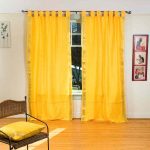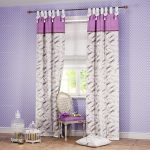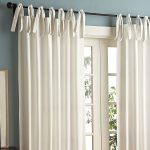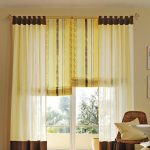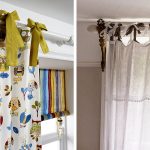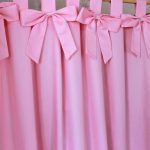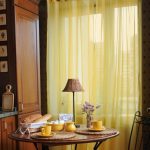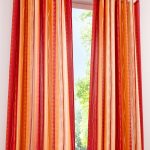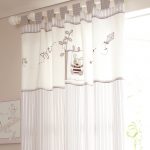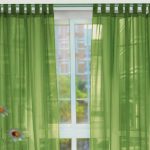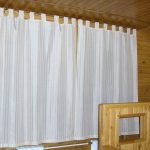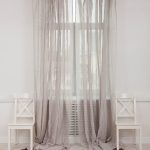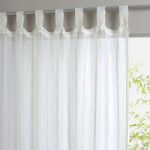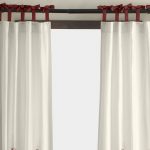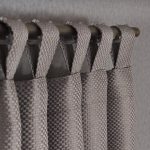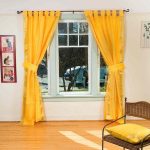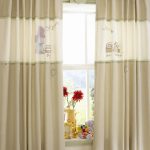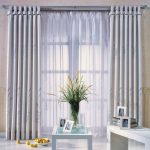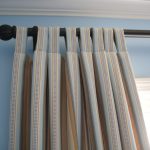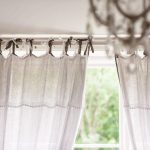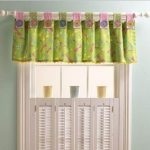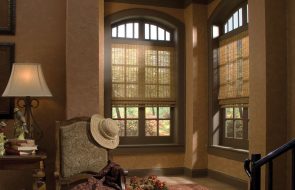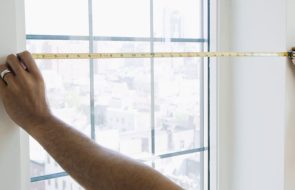Curtains on loops are a unique know-how in window design. They are not very common, but they immediately attract attention.
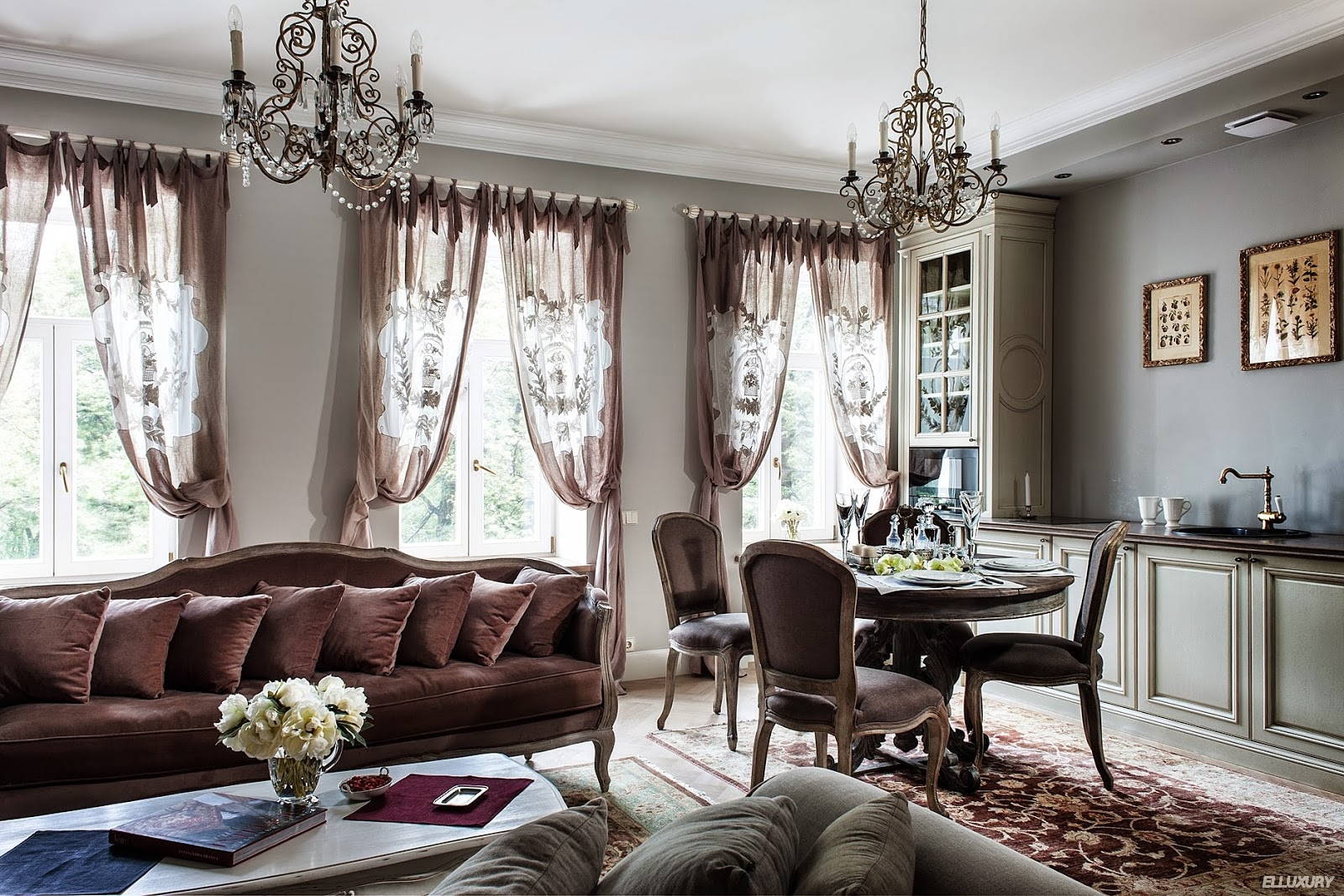
Content
Features of curtains with loops
Like any model, curtains with loops have their strengths and weaknesses. However, the advantages still "outweigh".
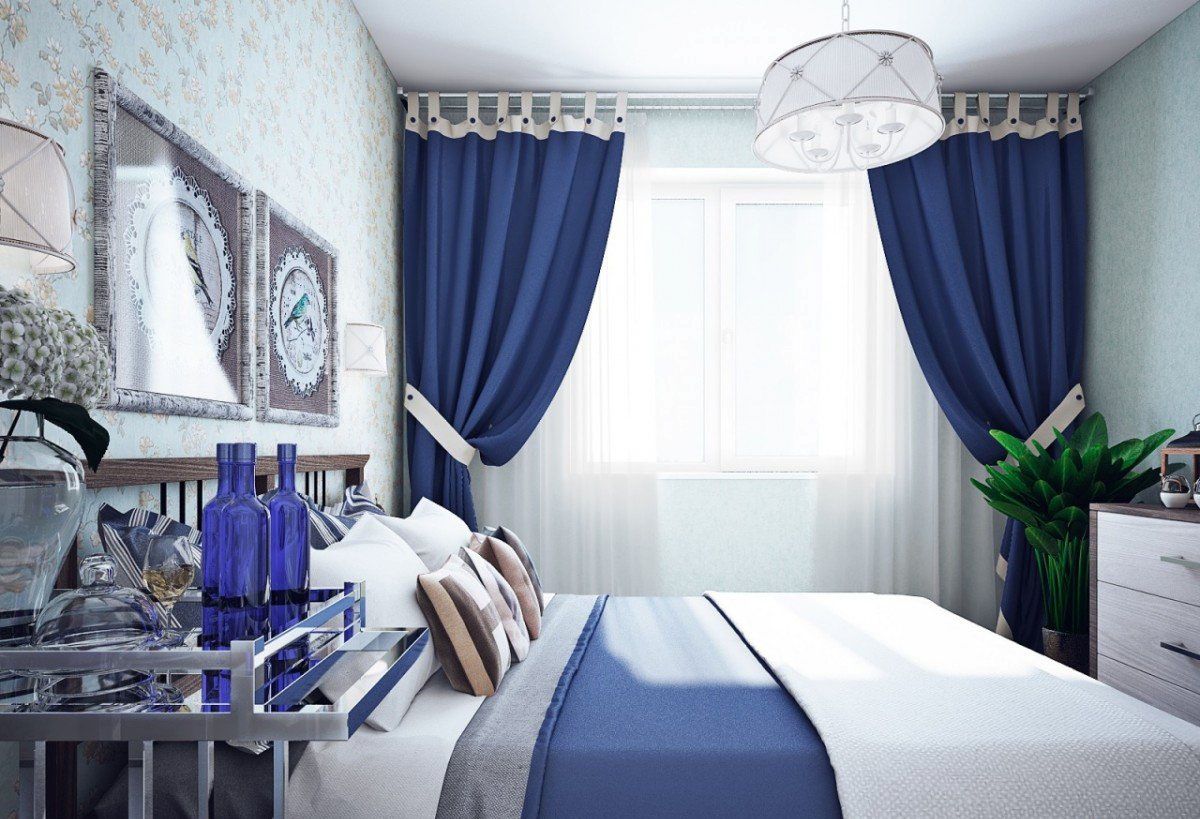
- Elegant appearance. When the canvas and loops are made of the same fabric, it creates the impression of integrity. And if contrasting materials are chosen, it looks creative.
- Curtains are not damaged by metal or plastic fasteners;
- There is no noise when opening or closing the curtains, the fabric moves easily;
- Even curtains that are plain at first glance can be “colored” with bright loops. The material for the loops can be different;
- The harmonious combination of contrasting loops with ruffles and flounces of the same color looks impressive;
- Such curtains are a suitable addition to any interior design.
- The hinged fastening will hold both massive curtains and light tulle.
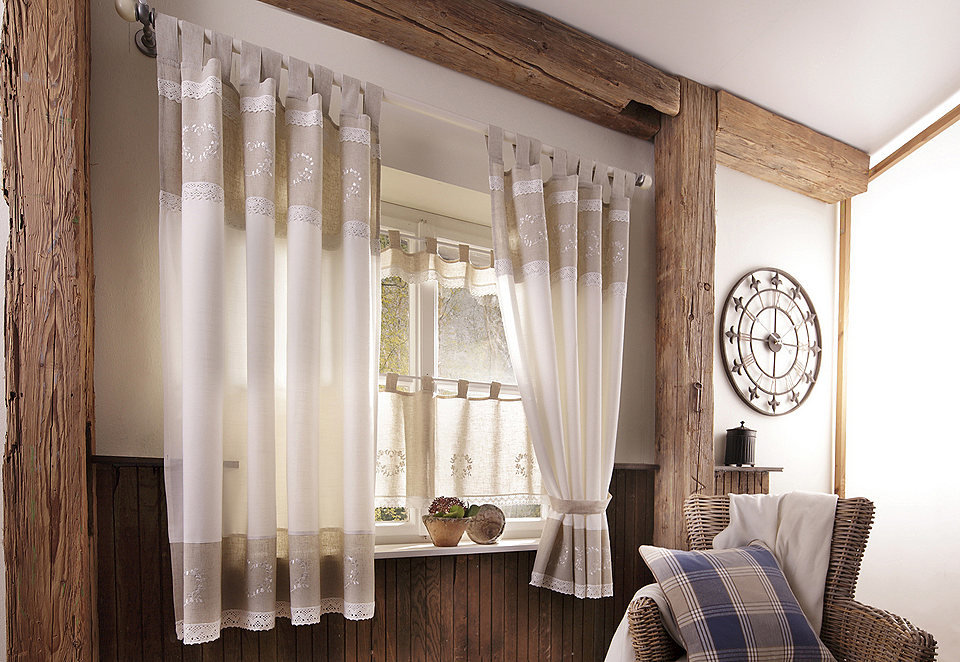
If we talk about disadvantages, then there is probably only one - wear of the hinges. But, firstly, this will not happen so quickly, and secondly, the hinges can be easily replaced. If desired, this problem can be solved by inserting an additional layer of synthetic fabric into the hinges. In this case, wear resistance increases, and the hinges will slide along the cornice more easily.
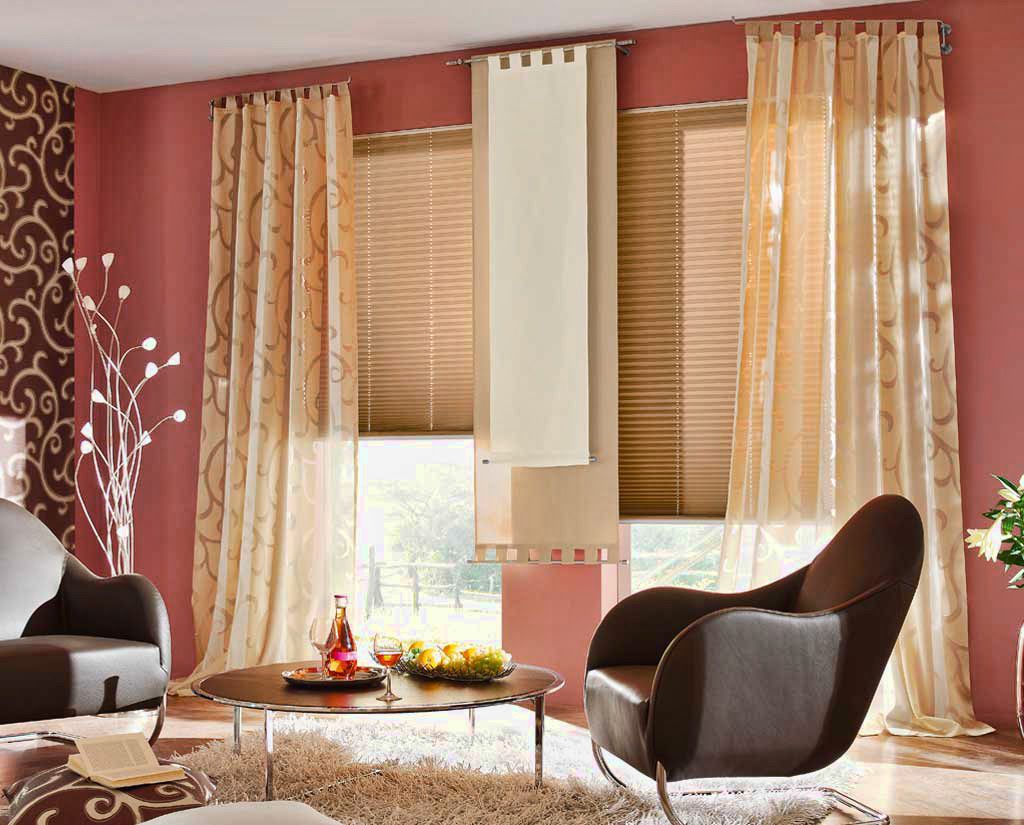
Loops are divided into two types:
- deaf;
- removable.
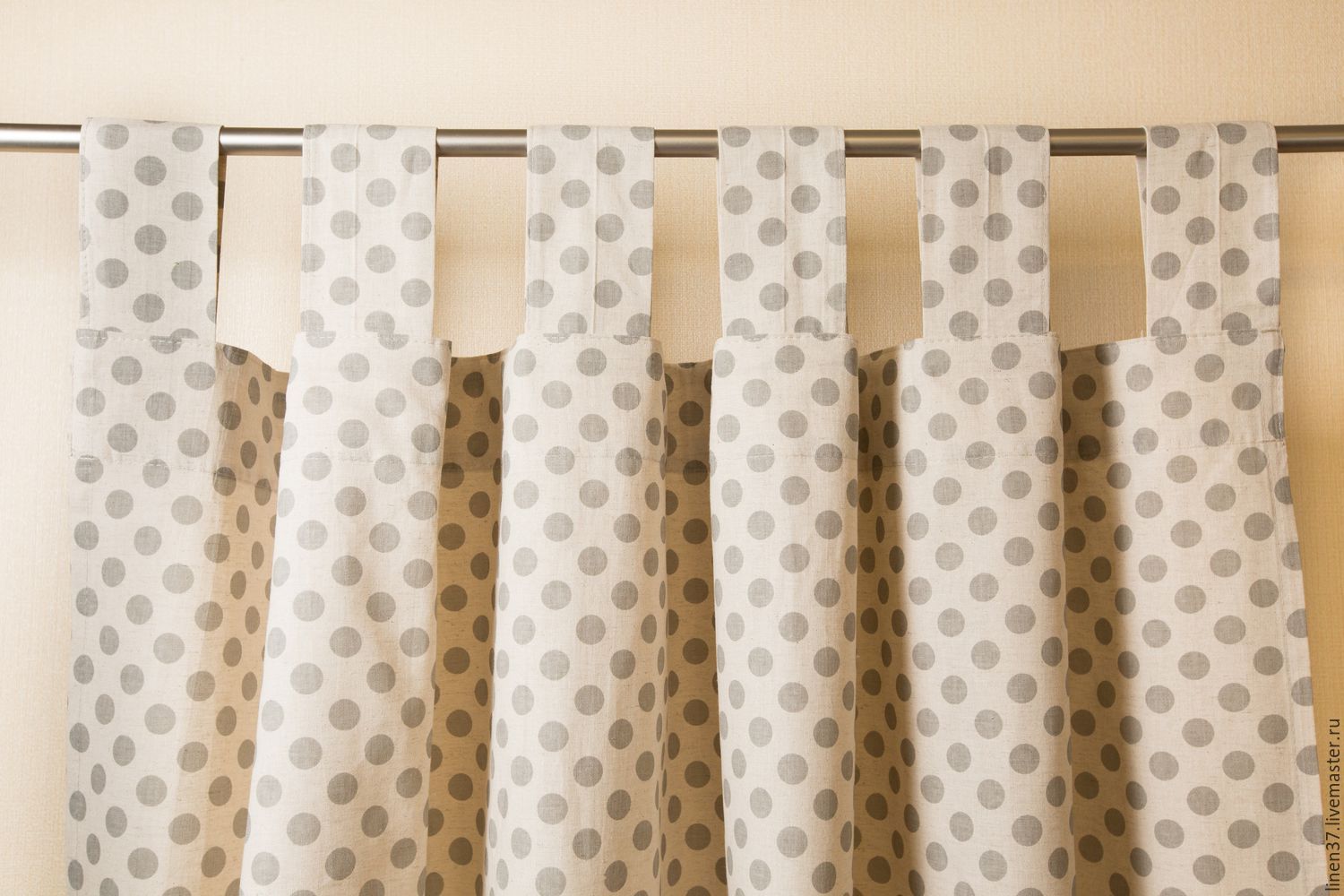
Blind loops are sewn into the fabric, and removable ones are attached using various devices. These can be buttons, Velcro, ties. The range of possible options is huge, if your imagination allows - come up with your own exclusive option. You will not break any rules, in this case, experiments are only welcome.
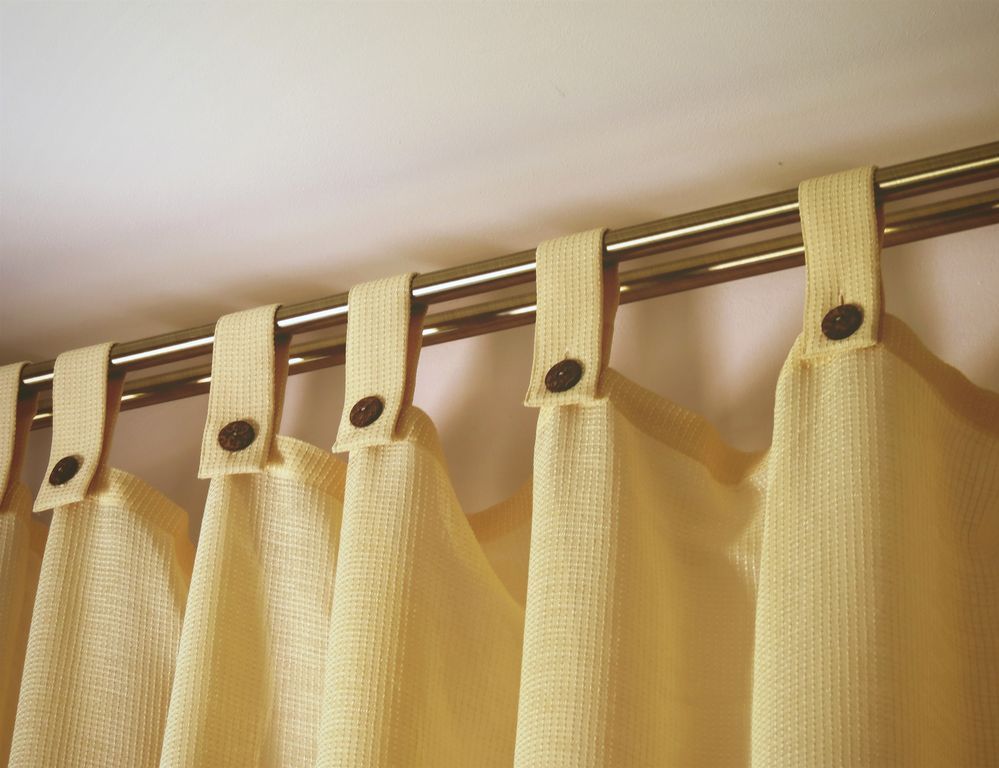
Options for different rooms
The most common model is straight canvases with loops made of the same fabric. However, time makes its own adjustments, and the Roman version is becoming more and more suitable for many. Roman blinds have confidently entered our everyday life relatively recently, and, it seems, have settled in for a long time. A variety of designs, a wide color palette and maximum functionality have made them a must in interiors of different styles. And the model with loop fastening is in demand more than ever.
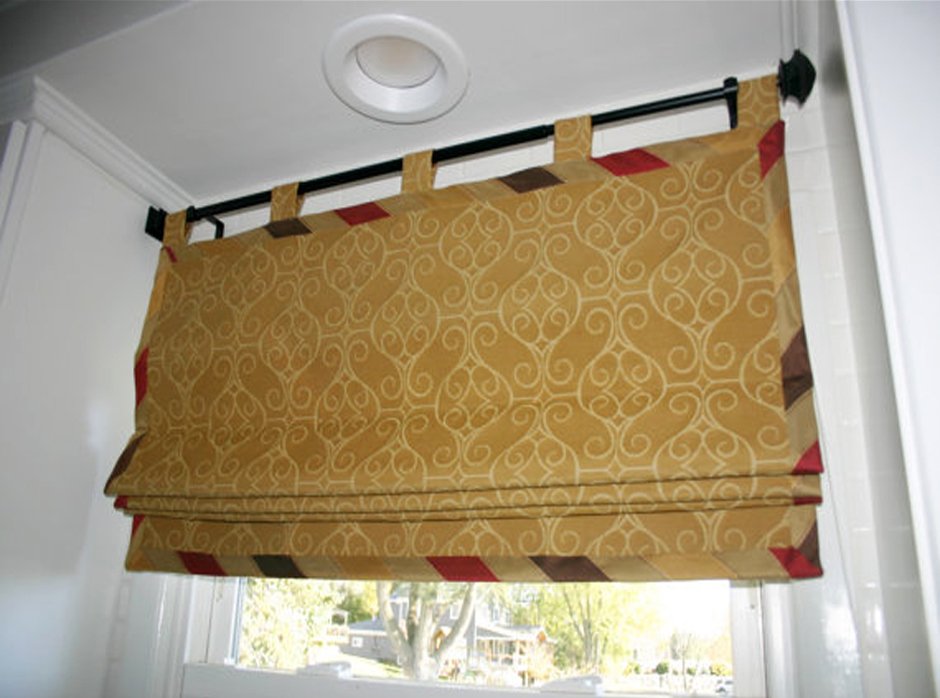
If you want to complement this model of curtains with lambrequins or flounces, this is acceptable, but it is better if the additional elements are also attached on loops.
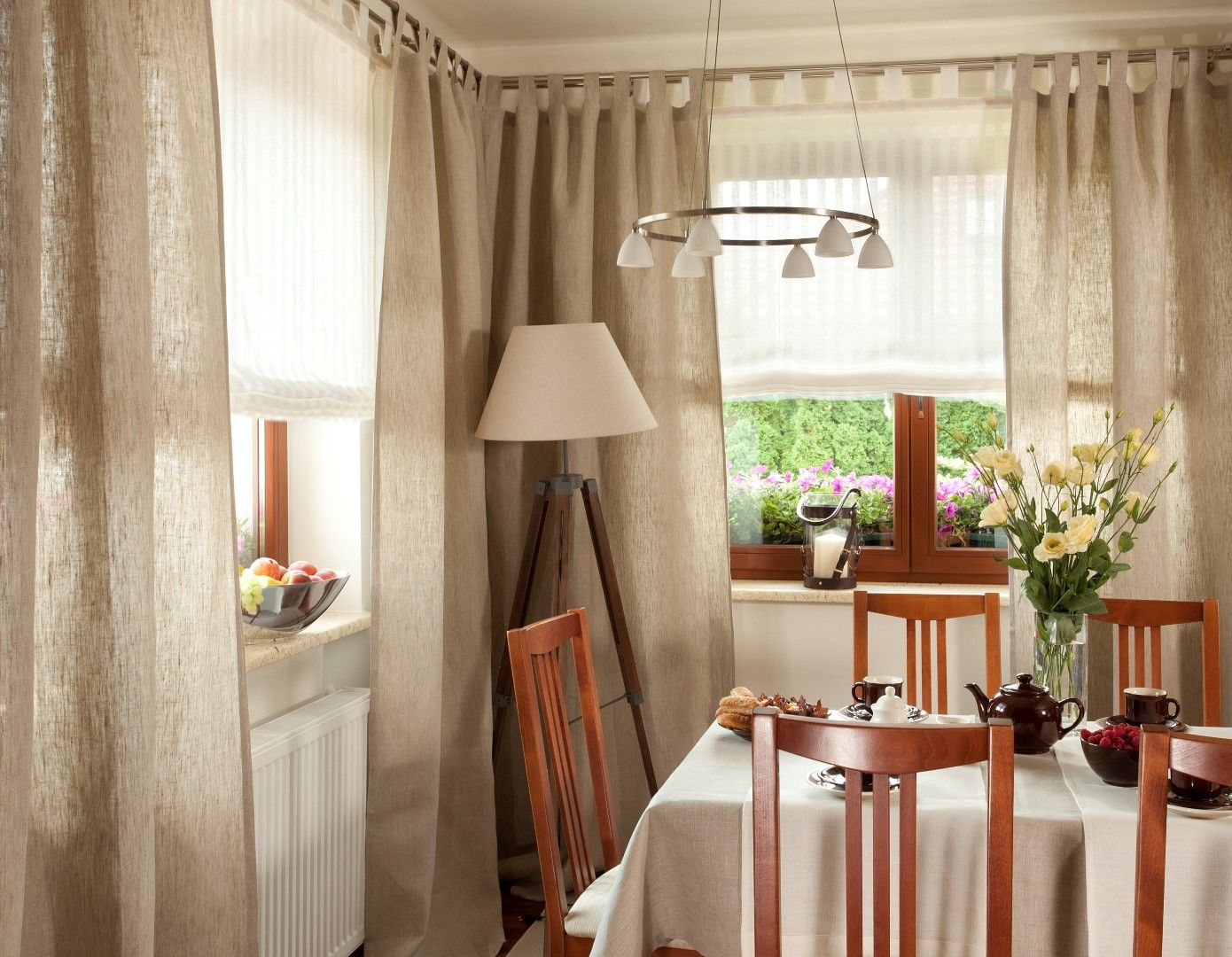
For the kitchen
An interesting detail: curtains on loops originate from the kitchen embodiment. After all, they are a derivative of the beloved Provence or country style. Therefore, it is not surprising that today such curtains are most often used to decorate the window opening in the kitchen. They look very cozy and homely, do not take up much space and are very functional: they allow you to easily open and close the window. And this is exactly what is needed for the kitchen - to be pleasant and contribute to the work process.
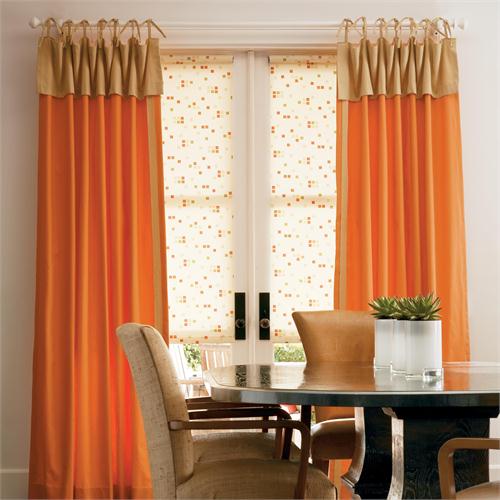
Models suitable for the kitchen differ in both color scheme and design. For example, some prefer delicate shades and small, unobtrusive patterns, while others, on the contrary, prefer bright accents and bright prints. Curtains on loops will perfectly “withstand” both options. In addition, there are lovers of curtains up to the windowsill, while others prefer long canvases, and again, the model allows you to bring both solutions to life.
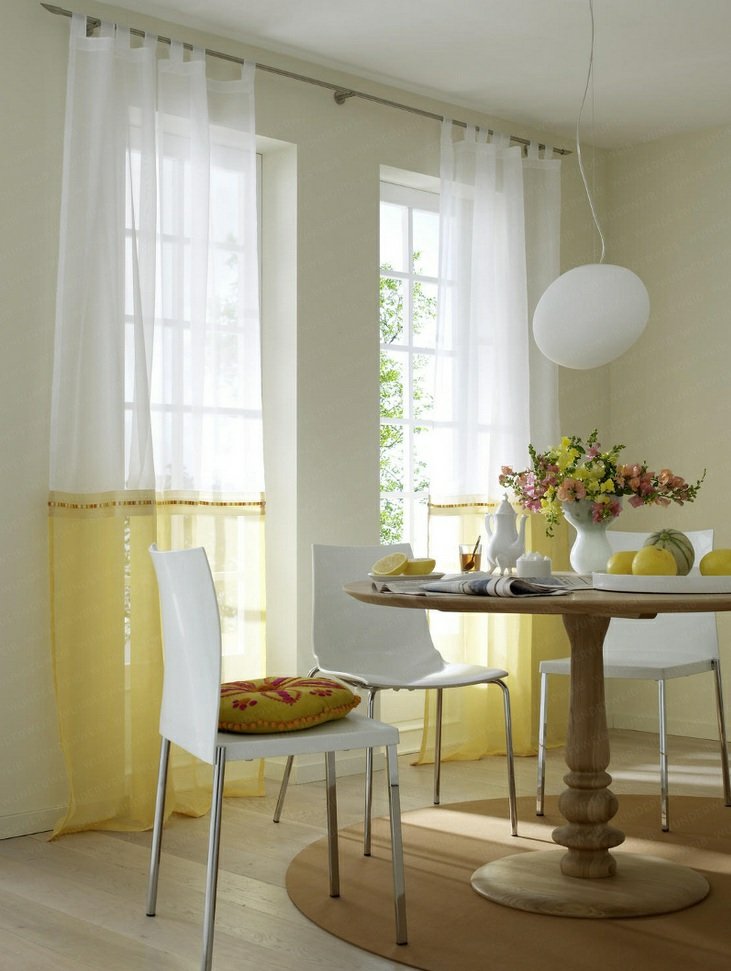
For the living room
Curtains for the living room are chosen with special care, since this is the place where guests are usually invited. Curtains on loops are an ideal option for the hall. They look strict, and at the same time elegant and stylish. Functionality and conciseness. Such a design will suit both several windows nearby and one small window.
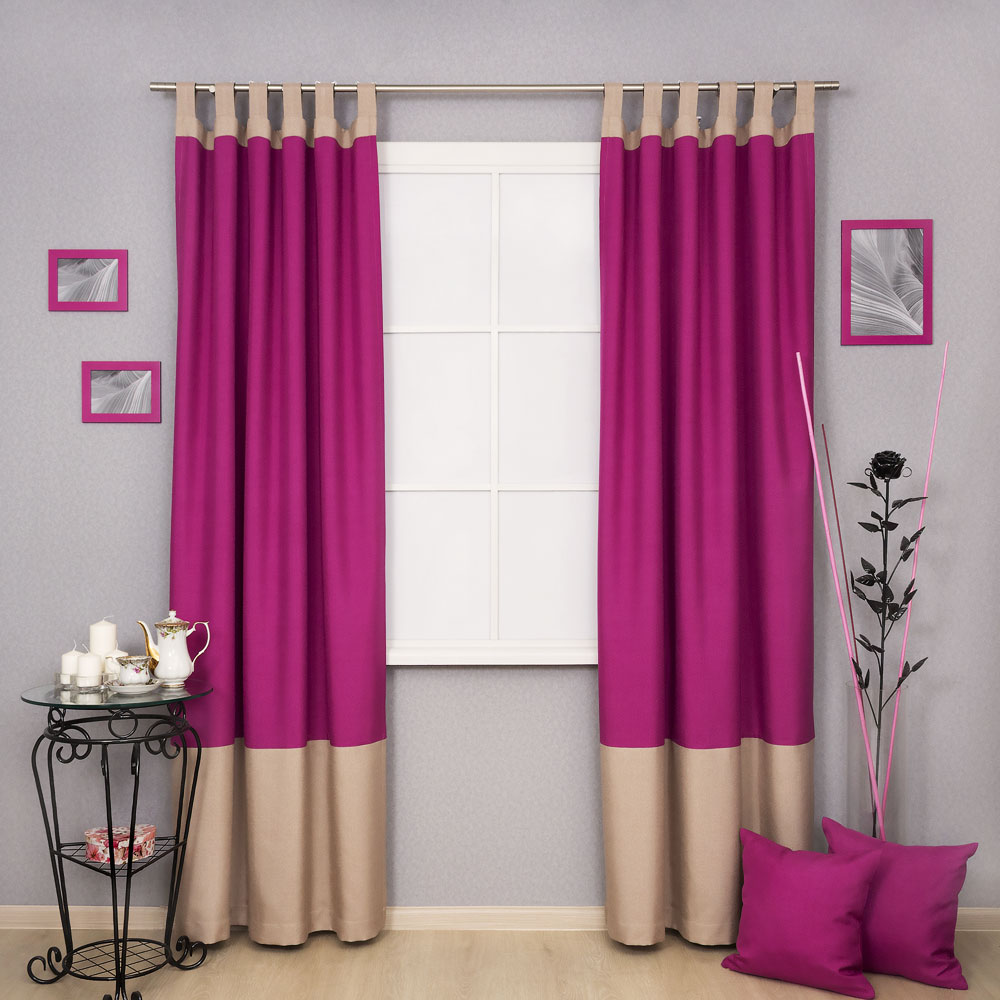
To give familiar canvases an interesting look, you can place the loops at a slightly greater distance than is assumed in the classic version of "loop curtains". Thanks to this trick, the lower edge of the canvas will hang down in flounces, and unusual "combs" will form in the upper part. Such a curtain will effectively complement a thick curtain fabric.
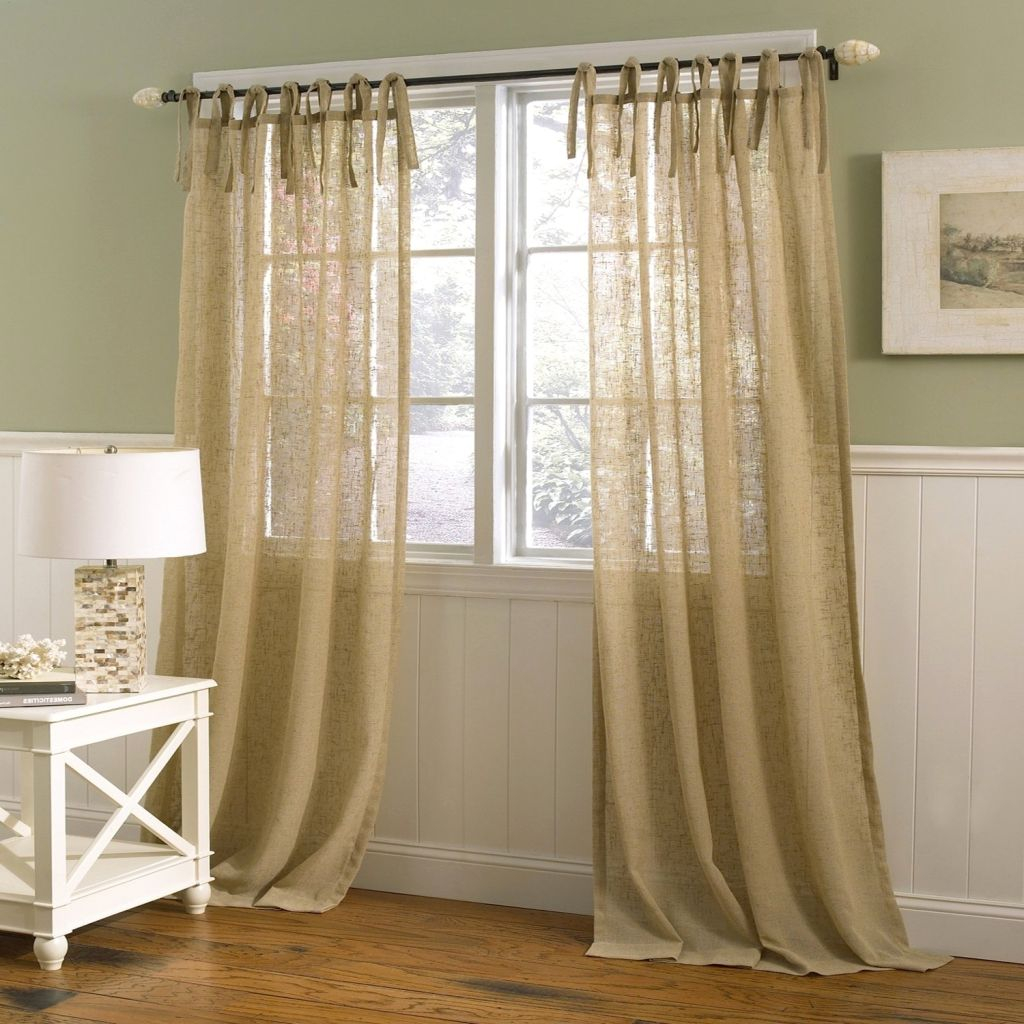
For the bedroom
To create an ideal atmosphere of peace and quiet, curtains with loops are a great option. First of all, because with their help you can easily regulate the degree of illumination of the room. And if you want to minimize the amount of sunlight. Special curtain fabrics will help with this.
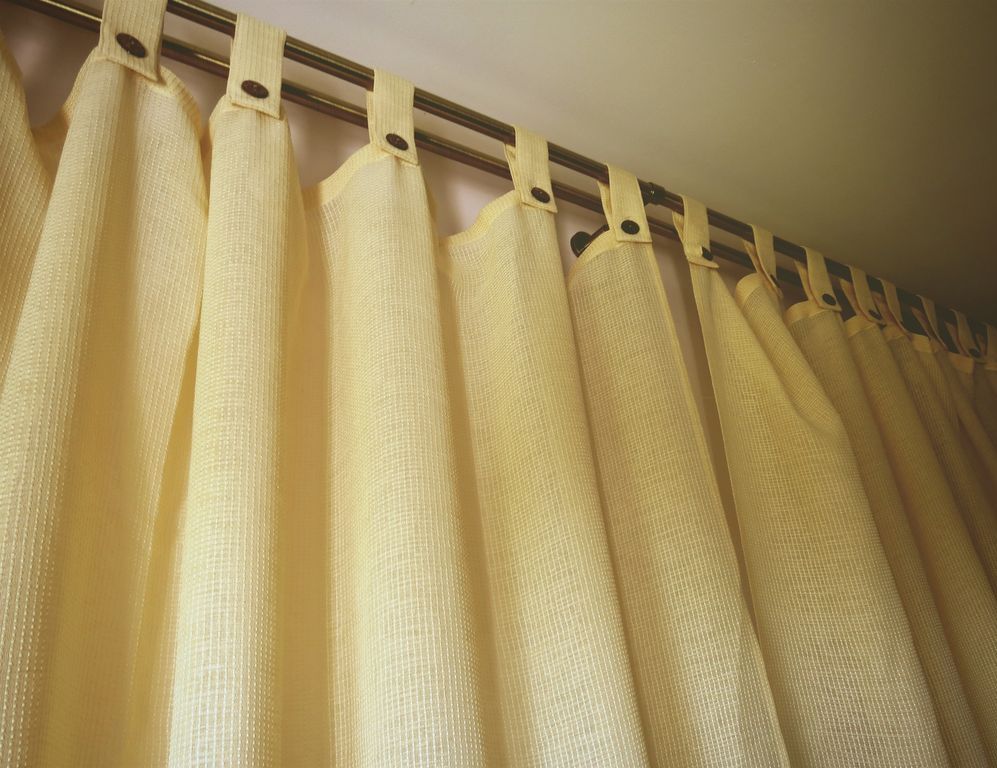
Important! The curtains in the rest room should not sag. Therefore, a rigid tape is sewn to the top of the curtain to fully fix the structure. Thanks to this, a beautiful, uniform drapery is formed.
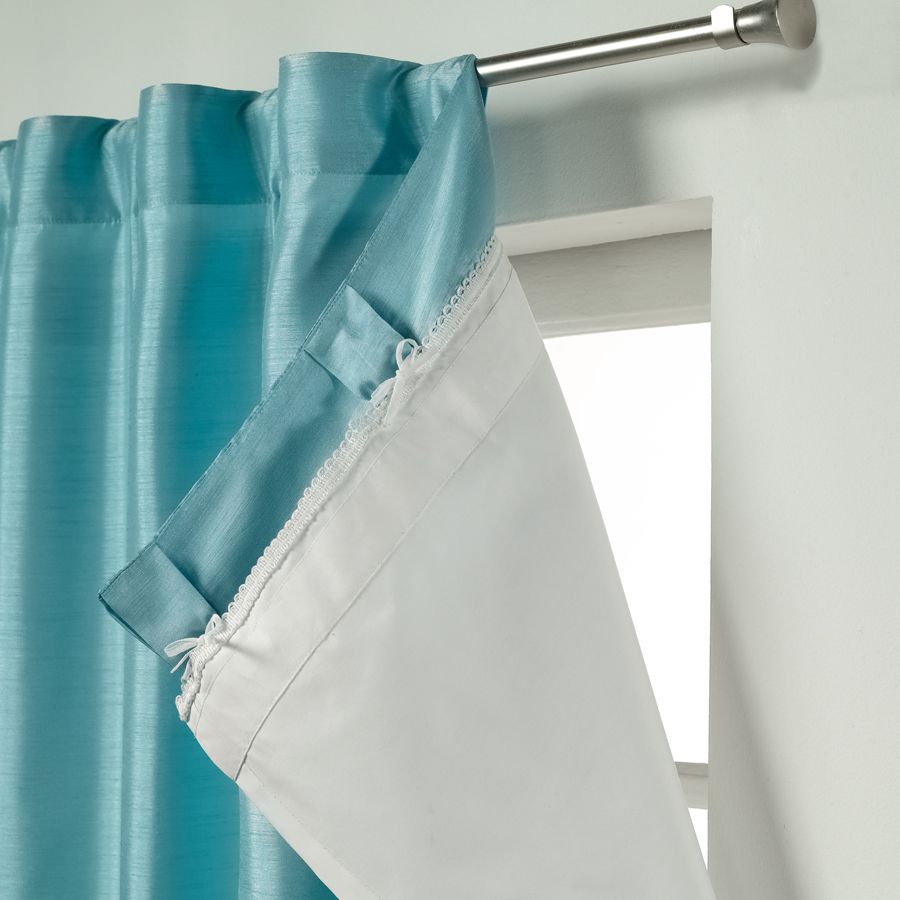
How to sew curtains with loops with your own hands
Externally, such models look incredibly stylish, and not everyone will guess that they can be easily sewn with their own hands. Having basic sewing skills, and even being “on you” with your grandmother’s sewing machine, you can create creative “clothes” for the window in a couple of evenings.
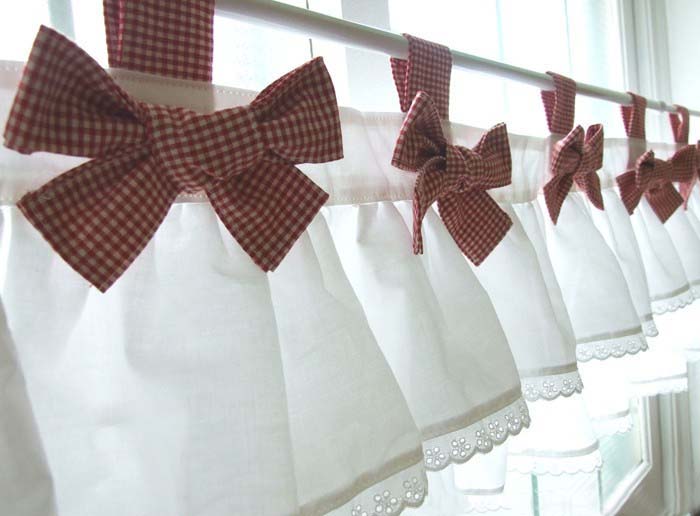
In order for the curtains to decorate the interior and fit, you should carefully take measurements. Determine the width of the future curtain. To do this, the length of the cornice must be multiplied by a certain coefficient. Its value depends on how "deep" the drapery you want to get as a result. Usually the coefficient is chosen within the range from 1.2 to 2.
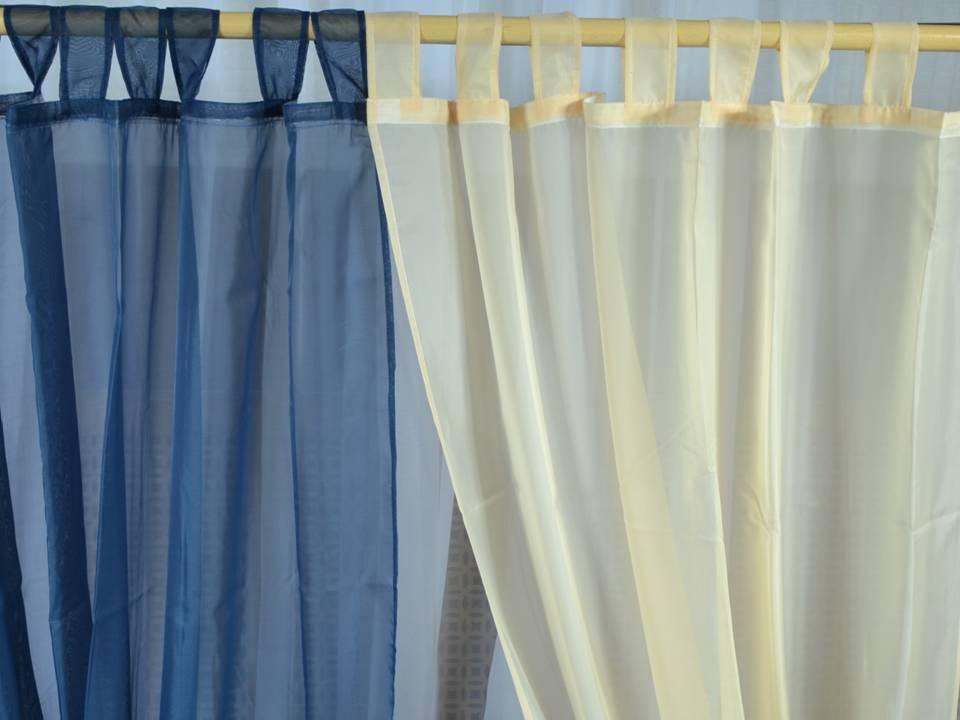
The length of the curtains will depend, among other things, on the depth of the drapery. Since for a curtain with folds the length of the loop is 15 cm, and for a smoother curtain – 10 cm.
Another important nuance: the distance between the loops should exceed their width. Following this unspoken rule allows you to give a more interesting and finished look to the entire structure.
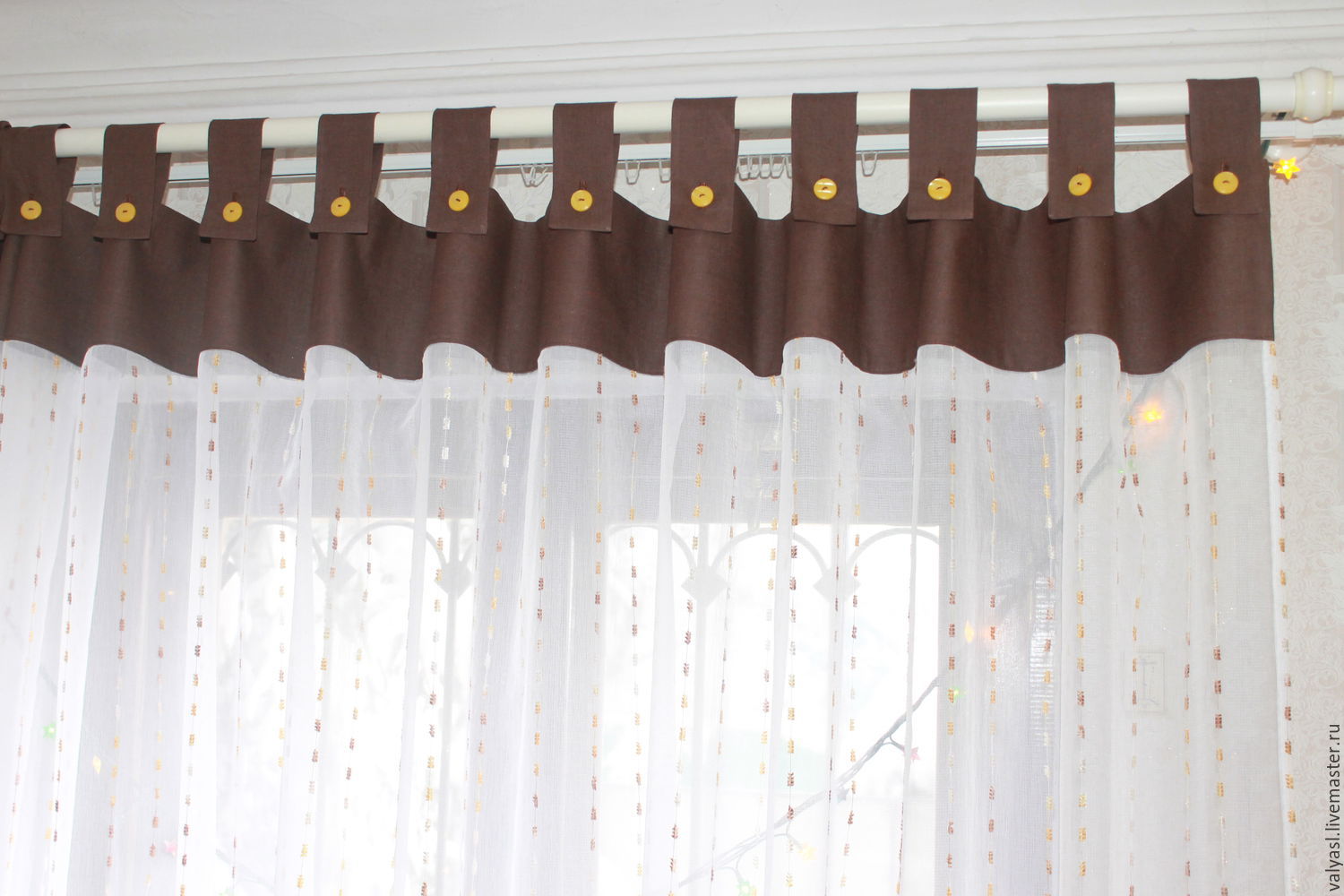
So, having finished with the measurements, you can start sewing. First, transfer the calculations from paper to the fabric. Mark where the loops will be and stitch the edges. Then move on to sewing the loops for the curtains. If you are not looking for easy ways and it is extremely important for you that both the curtains and the loops are made of the same fabric, then be patient and get to work! First, cut out the required number of rectangular fragments from the fabric, from which we will make the loops. Fold them with the right side inward and stitch, leaving about 5 - 7 mm along the edge, and one side to turn out. Then turn the finished loops inside out, carefully straighten them and iron them.
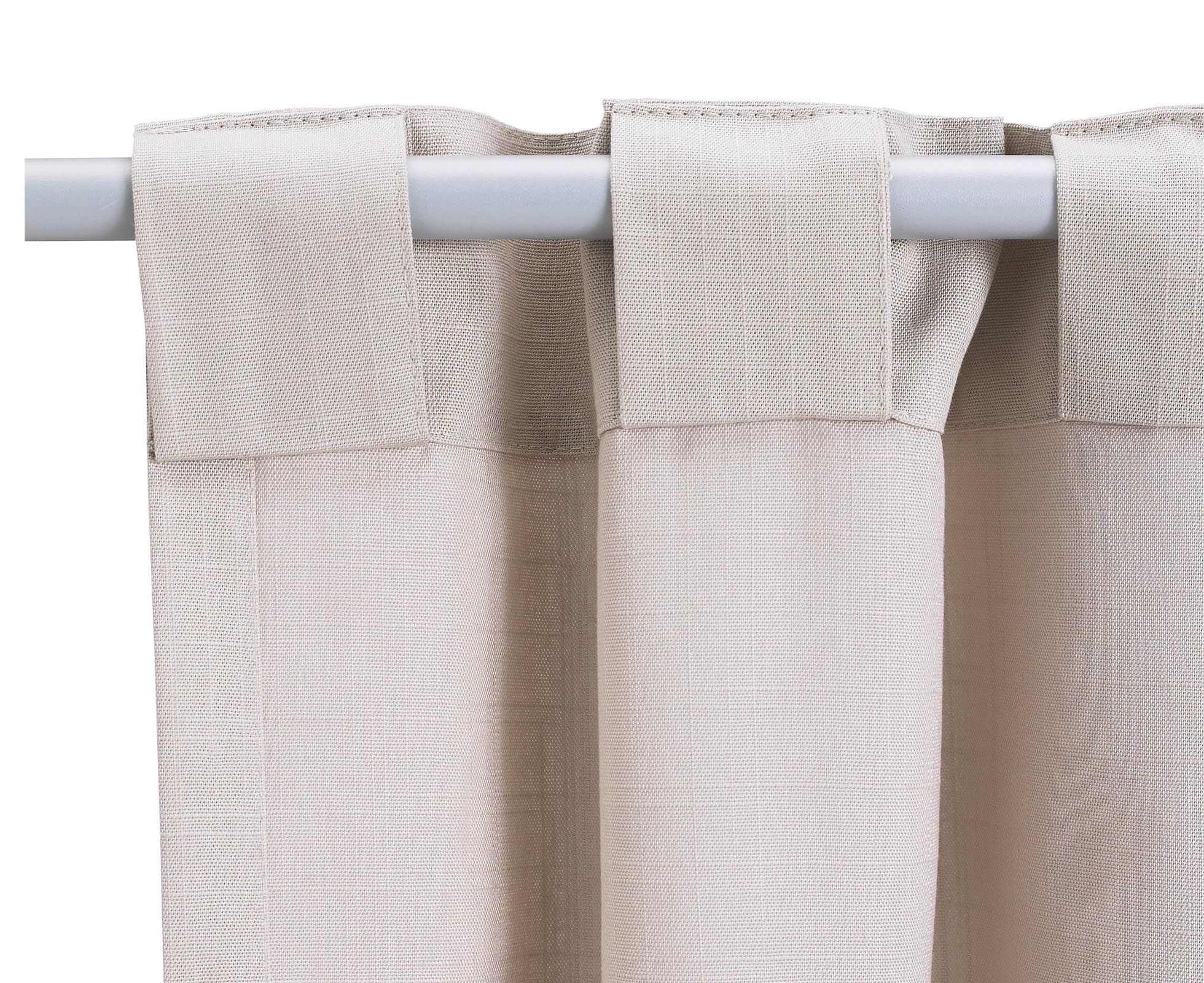
There are two ways to attach the loops to the fabric: like a pocket, hiding both edges of the loop inside the curtain, or at the top, hiding the edges under a decorative tape.
Loops can only be used as fastenings on smooth curtain rods, since the fabric must slide freely.
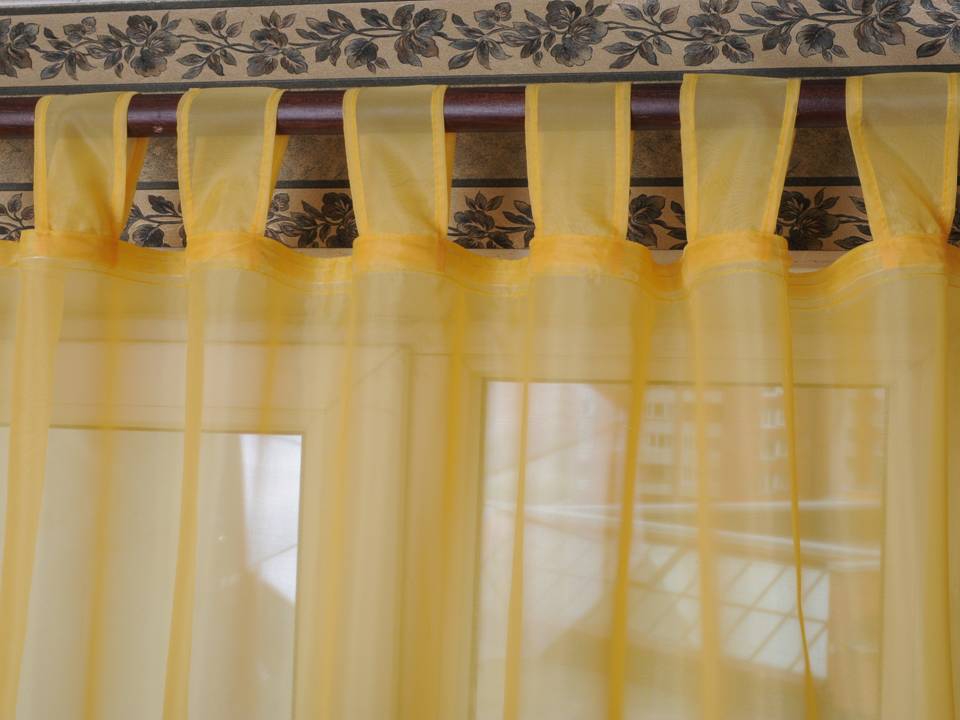
Important! If you prefer blind loops, remember that you can only remove the fabric for washing by completely disassembling the curtain rod. And if we are talking about curtains in the kitchen or in the nursery, which have to be washed more often than all the others, such a model is unlikely to be suitable. So, it is better to choose removable loops.
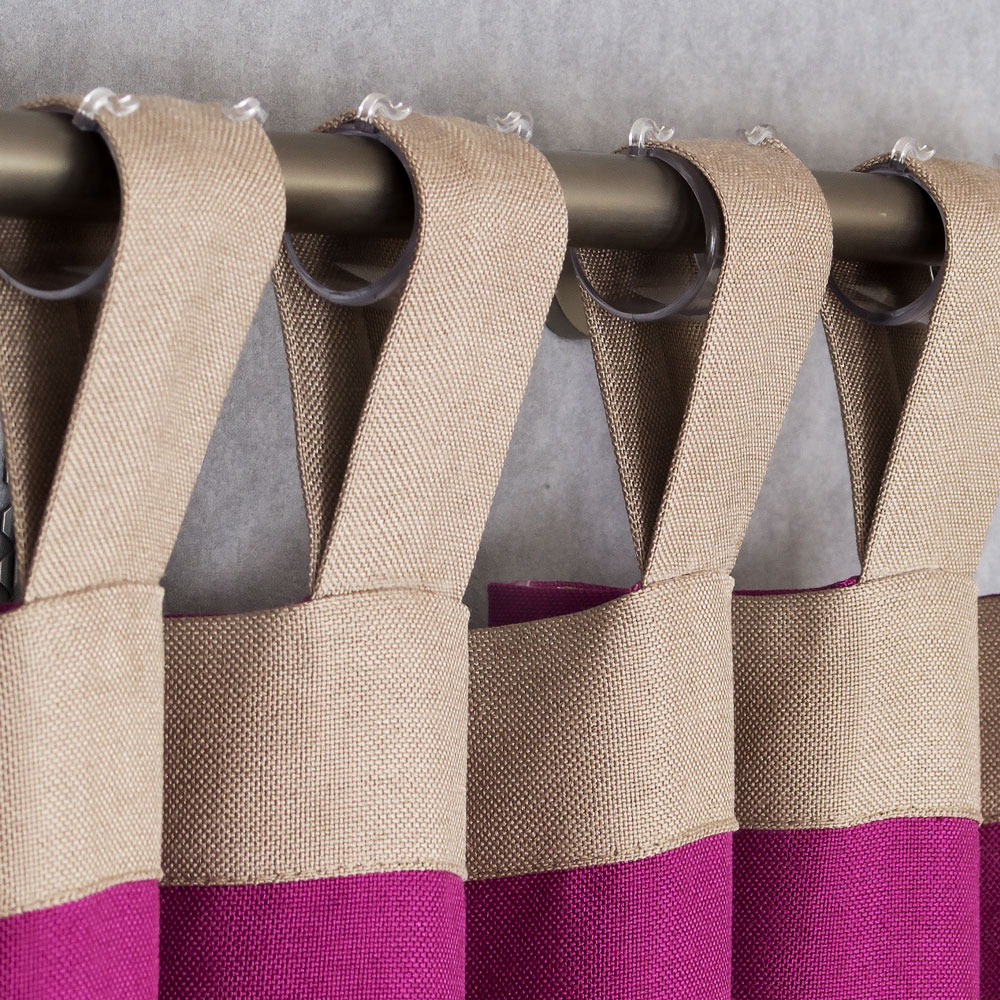
If you sew curtains yourself, the most affordable option is buttons or Velcro. Having sewn one end of the loop to the canvas, we sew Velcro in the same place. The second part of the Velcro is sewn to the other edge of the loop. Using the same principle, you can make loops on buttons or other decorative details.
Loops or eyelets: what to choose
Both loops and eyelets as fastenings are very popular and modern today. And, most likely, choosing one or the other option is extremely difficult. Let's try to understand the advantages and disadvantages of these fashionable designs.
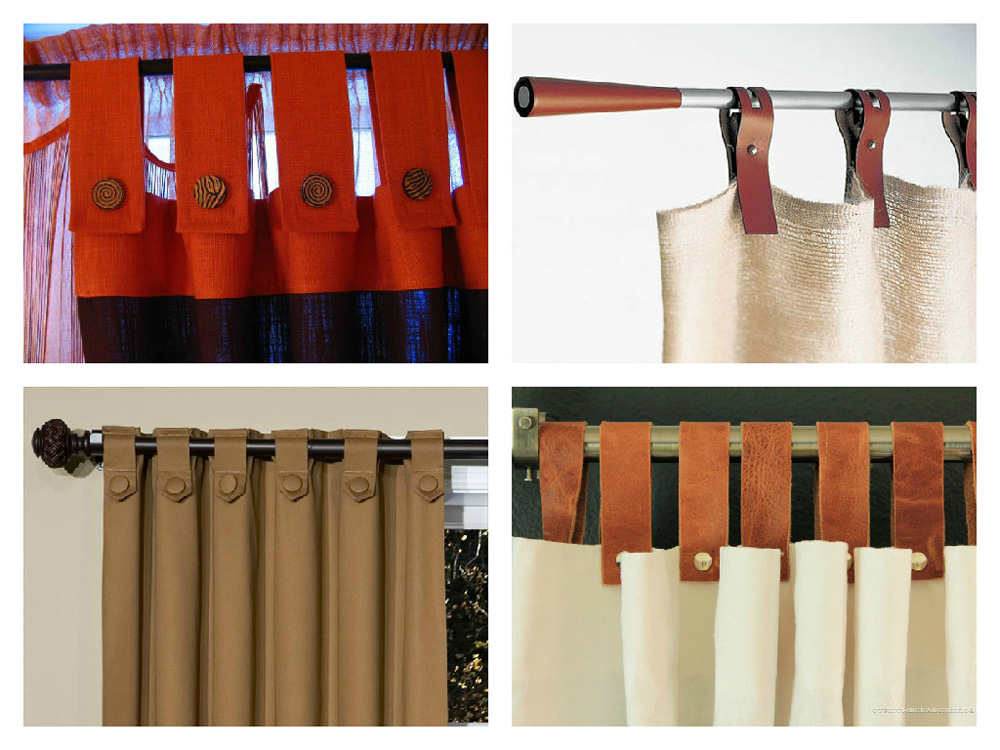
Loops
Advantages. A great way to attach any fabric: from thick and textured fabric to weightless tulle. Suitable for any interior style, from classic to modern.
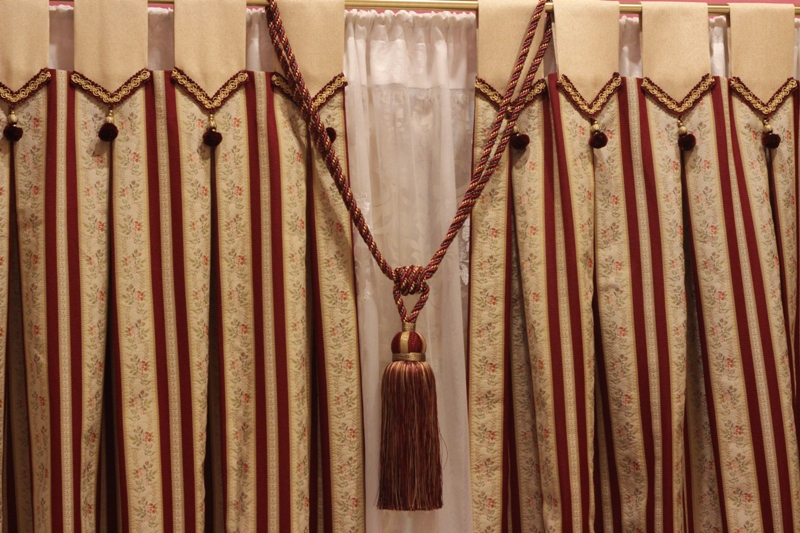
Disadvantages. When using blind hinges, in order to remove or hang the canvases, you have to disassemble the cornice. If the base of the cornice is slightly rough, it is difficult to distribute the hinges evenly.
Eyelets
Advantages. The rings are sewn into the curtain, and the fabric is attached either directly to the rings or using additional hooks. An ideal option for thick fabrics, they complement retro, grunge and classic styles appropriately. They are effective in spacious living rooms.
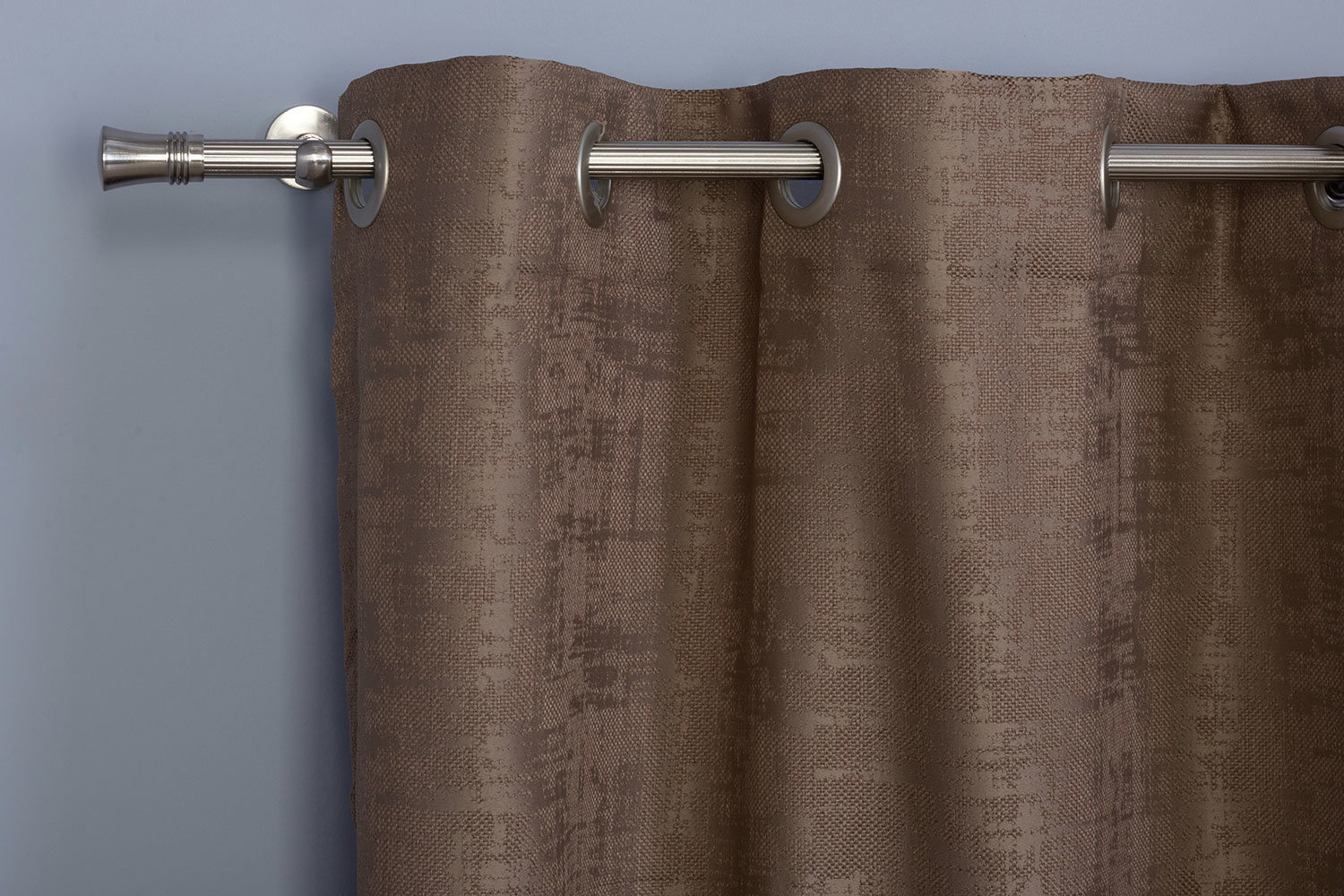
Disadvantages: They move noisily along the cornice, can scratch it, are not suitable for curtains and tulle.
Ultimately, it all depends on personal preference. For example, if uniform folds on the curtain are important to you and you don’t care about the noise the canvas makes when it moves along the cornice, then eyelets are definitely your option. But if you are looking for peace and privacy and any noise is contraindicated for you, then your choice – loops, blind or removable, does not matter.
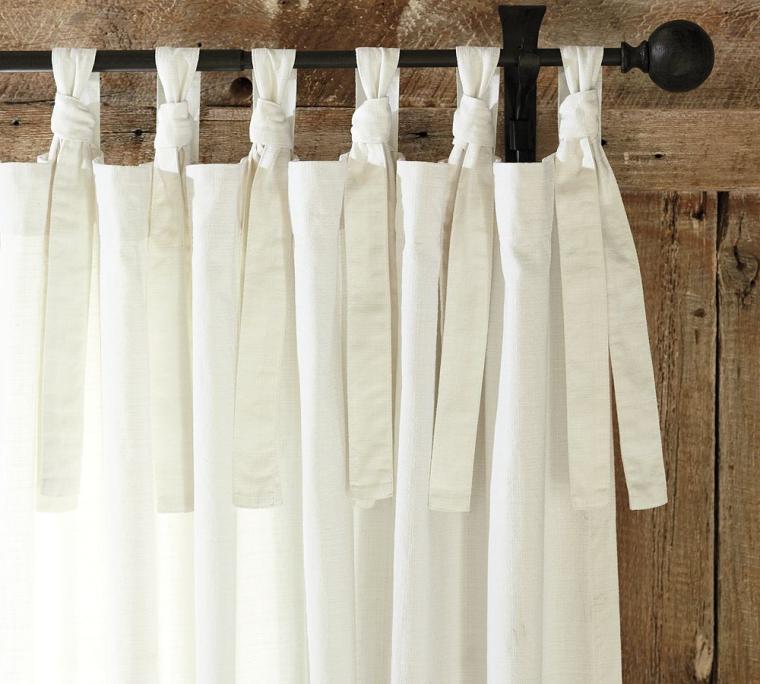
It is obvious that textile loops are a great opportunity to make curtains in the kitchen, living room or bedroom comfortable and suitable for the overall interior design. The variety of color solutions allows you to choose the right option. And if you wish, you can make such a model yourself.
